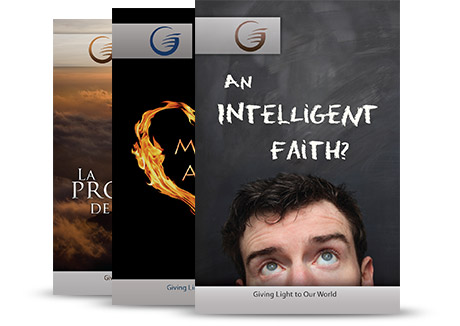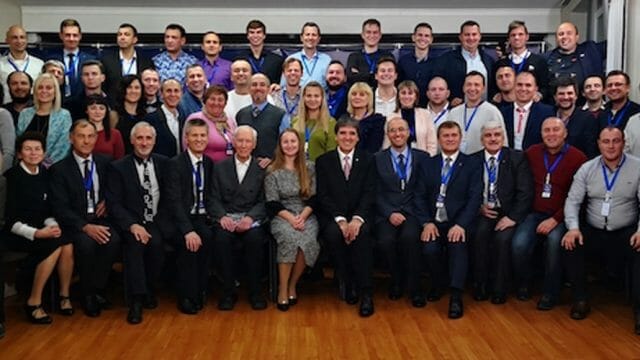Most of the literature we distribute ends up in landfills. Is it worth it?

Some time ago, I read a study which stated that Canada leads the world in garbage production per capita.1 Canadians generate approximately 2.7 kilograms (6 pounds) of garbage per person per day!2
Much of the Adventist literature that Giving Light to Our World (GLOW) shares ends up as waste. In 2021, more than 200,000 GLOW tracts were distributed across Canada. Most certainly, many of them ended up in landfills. In a country that is struggling to be more environmentally friendly, are we being responsible citizens when we share tracts and books that will most likely get discarded?
Just looking at the figures, we might be hesitant to share literature, but let’s look more closely at the true impact of literature evangelism.
Of course, there is the principle that we cannot place too high a value on a single soul won to Christ. When I say this, I think of a man who was baptized just a couple of weeks ago. His journey into the Seventh-day Adventist Church began when someone at Costco handed him a GLOW tract.
I also think of hundreds of what I call “mini divine appointments.” These occur all across the country, and I hear about them from church members. They share with me about the wonderful encounters they experience when they give out literature to inspire faith and hope.
So many people are glad to receive these gifts. For example, there’s the delivery man who told me he reads his Bible every day, even if he doesn’t go to church. Or the woman I prayed with as a result of her sharing about her struggles with her husband’s mental health. Both individuals were glad to receive something small to give them hope and direction.
Ellen White wrote, “I saw that the truth must go and that we must not be too fearful, that tracts and papers might better go to three where they were not needed than to have one deprived of them who prizes them and can be benefited by them.”3
So, it’s OK to waste three so that one can receive light. But don’t discard the impact of those three too quickly! I have noticed that the Holy Spirit does not need much to make an impression. Even if only a little is read, the Holy Spirit can take those few words and bring conviction — with hope. And in due time, we can be sure of that future harvest. Why? Because those other three tracts act as seed. That’s how “more than one thousand will soon be converted in one day, most of whom will trace their first convictions to the reading of our publications.”4
The other three tracts provide an opportunity, a chance to know. That’s part of God’s plan. That’s how love works. Love is not just for those who will respond. Love reaches out to all — giving all an opportunity to know Jesus and His saving grace.
So, if you see literature being thrown away, think of Jesus and His sacrifice. The Bible makes it clear that broad is the way to destruction and that the majority will be lost. But that fact never stopped Jesus from pouring out His life. To the universe, the plan of salvation might seem like a waste. But to Jesus, it’s definitely worth it to give each soul a chance. So go ahead and share. Let God take care of the waste.
The original version of this story appeared in the September 2022 issue of Canadian Adventist Messenger. Jonathan Zita serves as director of the Lifestyle Canada Education Service (LCES) literature ministry of the Seventh-day Adventist Church in Canada.
_________________________
1. “Canadians Produce More Garbage than Anyone Else,” CBC News, January 17, 2013, http://www.cbc.ca/news/business/canadians-produce-more-garbage-than-anyone-else-1.1394020.
2. Royal Roads University, “Solutions Agenda: Waste,” Community Research Connections, https://www.crcresearch.org/solutions-agenda/waste#b. See also Government of Canada, “Solid Waste Diversion and Disposal,” January 26, 2022, https://www.canada.ca/en/environment-climate-change/services/environmental-indicators/solid-waste-diversion-disposal.html.
3. Ellen G. White, Early Writings (Washington, DC: Review and Herald, 1882), 95.
4. Ellen G. White, “An Address to the Workers,” Advent Review and Sabbath Herald, November 10, 1885.








